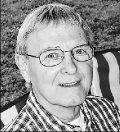Lifenotes: Hit Songwriter / Sideman X. Lincoln Passes
 Aries X. Lincoln, who made his mark as a touring band member and songwriter in Country music, has died of liver cancer at age 76.
Aries X. Lincoln, who made his mark as a touring band member and songwriter in Country music, has died of liver cancer at age 76.
He is perhaps best known as the co-writer of “Goin’ Down Hill” with John Anderson. In 1983, this top-10 hit was the follow-up single to Anderson’s signature song “Swingin.’”
Lincoln was born Billy Lee Tubb in San Antonio, TX. His family moved to Nashville, and he attended Donelson High School. He is the brother of hit country songwriter Glenn Douglas Tubb, the cousin of Grand Ole Opry star Justin Tubb and the nephew of Country Music Hall of Fame member Ernest Tubb.
After performing in the rockabilly act The Tubb Brothers and recording as “Ronny Wade” for King Records, he became a regular in Nashville nightspots such as Tootsie’s Orchid Lounge. He also recorded for Dot Records.
Lincoln toured as a sideman with Bob Luman, Roger Miller, Sheb Wooley, Hank Williams Jr., LeRoy Van Dyke, Sammi Smith, George Jones, Deborah Allen and others.
A bass player and guitarist, he joined the John Anderson Band in 1981 and remained with the group until 2000.
X. Lincoln, which was his legal billing, is survived by wife Connie, daughter Victoria Leigh Tubb, stepdaughter Lynda Joyce Kerney, grandsons Bryce Louis Planchard and Jesse Drew Planchard, brother Glenn Douglas Tubb and sisters Betty Tubb Drozer, Loretta Tubb Jordan and Marietta Tubb Raiber, as well as numerous nieces, nephews and cousins.
A memorial jam session will be held at the AFM office, 11 Music Circle North, on Sunday, Oct. 13.




 Singer-songwriter Buck Moore died in a tree-cutting accident in Idaho earlier this month (Sept. 10) at the age of 79. Moore is perhaps best known for Tracy Lawrence‘s 2005 hit “Paint Me A Birmingham.” He also penned songs for Randy Travis (“The Box,” co-written with Travis), Mo Bandy and Jo Stampley (“Holding The Bag”) Tammy Wynette (“The Note”) and others.
Singer-songwriter Buck Moore died in a tree-cutting accident in Idaho earlier this month (Sept. 10) at the age of 79. Moore is perhaps best known for Tracy Lawrence‘s 2005 hit “Paint Me A Birmingham.” He also penned songs for Randy Travis (“The Box,” co-written with Travis), Mo Bandy and Jo Stampley (“Holding The Bag”) Tammy Wynette (“The Note”) and others. Marvin Rainwater, a country star of the 1950s, died Tuesday, Sept. 17, in Minneapolis, MN. He died of heart failure at age 88, according to The New York Times. His “Gonna Find Me a Bluebird” was a No. 3 country smash and a top-20 pop hit in 1957.
Marvin Rainwater, a country star of the 1950s, died Tuesday, Sept. 17, in Minneapolis, MN. He died of heart failure at age 88, according to The New York Times. His “Gonna Find Me a Bluebird” was a No. 3 country smash and a top-20 pop hit in 1957.


 Dr. Ray Dolby, American inventor of groundbreaking audio technologies,
Dr. Ray Dolby, American inventor of groundbreaking audio technologies,